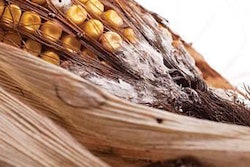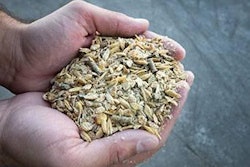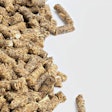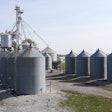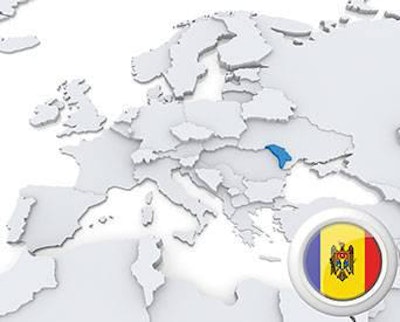
In the Eastern European country of Moldova, the public debate on the need to allow use of genetically modified organisms (GMO) in the production of livestock feed has resumed. According to local feed producers, 30 to 50 percent of the total forage production imported from Turkey, Ukraine, Hungary, Romania and Slovakia contains GMOs. Moldovan producers feel authorities need to make the necessary legislative moves to bring this market out of the shadows.
The cultivation and use of GMOs in Moldova has been officially banned since 2003, but authorities have failed to develop a system to monitor the import, production and distribution of GMOs in the country. However, the GMO lobby believes that legislative approval of such production will not only improve the profitability of feed and livestock producers, but it also may bring significant revenue to the state budget.
Near the end of 2014, the debates resumed when two companies requested permission from the National Commission on Biological Safety (NCBS) to import Romanian GM soybean meal. Moldovan ABC Trust Company and Romanian Vadcom-Prim intend to re-export Romanian meal supplies produced in Argentina and Brazil for further processing in compound feed production.
The companies’ representatives say the same has been done for a long time in the production of feed for livestock in neighboring Romania with no complaints from customers. Moreover, this production is approved in a number of European Union (EU) countries — whose standards the Moldovan authorities are currently applying — so the decision to approve the import of this meal would be quite meaningful.
Feed industry welcomes GM grains, politicians remain against
Authorities continue to a keep strict stance on the GMO issue. Deputy Minister of Environment of Moldova Lazar Kirike opposed the resolution and noted that the impact of GMOs, both on human health and environment, so far are poorly understood. In general, his position is supported by the Minister of Agriculture of Moldova Vasily Bumacov, which leaves the GMO lobby very few chances to succeed in their struggle.
At the same time, the truth is that most manufacturers in Moldova support the legislative approval of GMOs in the country, claiming that it may greatly improve their competitiveness and profitability, which has sharply dropped in recent months following the devaluation of the country’s currency, the lei (MDL), against the euro.
“Feed mills in Moldova today purchase up to 40 percent of the raw material for animal feed production abroad, and because of the severe devaluation of the Moldovan lei, they suffer serious losses and face a decline in profitability,” says Stanislav Kovalchev, CEO of Agro Trade Company, which is conducting import of forage crops in Moldova.
The head of one locally based feed mill, who requested anonymity, shared his thoughts: “The truth is that the fight against genetically modified products does not make any sense, because every year it has [been] increasing its presence in the structure of feed market in the country. According to various estimates, its share now ranges from 30 to 50 percent of total production. We’re using it and our competitors using it as well.”
“Importers engaged in the supply and sale of GM raw materials do not face any risks because in the country there is not a single laboratory capable of identifying the presence of GMO in products,” he adds. “About 65 percent of the soybeans and 40 percent of maize is imported from Turkey, Ukraine and the EU countries where the cultivation of GMOs is possible.”
The question then becomes, how have these illegal GM grains remained undetected?
Feed, grains not currently tested for GMOs
All veterinary bodies in the country confirm that they currently do not conduct any GM testing of grain or compound feed. Representatives from the Testing Laboratory of the Quality Control of Food and Agricultural Products, under the National Institute of Metrology and Standardization, confirmed that neither they — nor anyone else in Moldova — checks feed for the presence of GMOs. The Institute of Food Technologies of Moldova also confirmed that it is not dealing with such issues.
What is the reason for this lack of technical documentation?
According to Ilya Trombitsky, head of the international environmental association, Eco-TIRAS, “Safety inspection of a genetically modified organism today is worth about 1 million euros,” and the country is not willing to invest that amount of money in the improvement of sanitary control.
Meanwhile, authorities promise to keep a strict stance on the GMO issue, even despite the pressures of domestic and foreign feed producers.
“Of course we understand all the economic advantages of the use of genetically modified products, but we cannot sacrifice the health of consumers in favor of the profitability of individual producers,” says Valeriu Starotesku, a representative from the National Commission on Biological safety.
Generating testing knowledge, investments
With the reopening of public debates on the need to approve GMOs in feed production, the country’s government promised to not only keep the ban in place, but also to intensify the fight with the “shadow market” of compound feed with GMOs by enlisting the aid and experience of foreign entities.
The preliminary plans by the Agricultural Ministry indicate that, initially, it should create five laboratories in various regions of the country of the total worth MDL12.5 million (USD657,000).
Within the first step of implementation of the plan to fight GMOs on the domestic market, Bumacov announced a contract with Israeli companies on the construction of the first Moldovan laboratory for the identification of GMO feed.
“Israel has allocated EUR300,000 (USD322,815) for the support of the Moldovan laboratory of checking products for the presence of GMO,” reports Bumacov. “Another EUR50 million (USD53.8 million) will be allocated for training of Moldovan specialists in Israel to work on the equipment in the new laboratory.”
He also added that: “Moldova succeeds in technical re-equipment [of laboratories] and work for the identification of GMO in the agricultural production, and foreign partners are actively involved in helping the Republic in this matter. Moldova is an active fighter with GMOs, and a new stage of work in this area will improve conditions for exports of livestock production from the republic.”
The project will also involve specialists from Norway and Romania; however, Bumacov didn’t specify a timeline for the creation of this system.
Market participants suggest the fight against the “shadow market” will be halfhearted considering the balance of interests and concessions in this situation, e.g. the compound feed industry has already grown accustomed to using imported GM raw materials. While GMOs are not officially allowed in Moldova, their use in feed production — and possibly food — suits everyone, and the government is hesitant to push back too hard.


